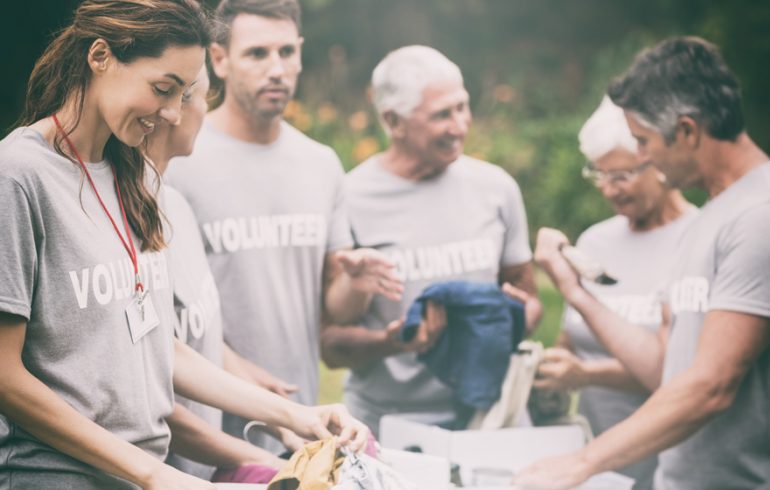When we volunteer, we’re helping other people. But here’s an added bonus: by volunteering, we’re also helping ourselves. There’s evidence that suggests volunteering can have incredible benefits to our health, longevity and well-being. And it’s easy to do.

I recently spoke with Ben Lennox Kail and Dawn Carr, who co-authored a Georgia State University (GSU) study published in The Journals of Gerontology, which advocates the benefits of volunteer work and community service.
They found that volunteering only 100 hours per year — which breaks down to a little more than eight hours per month — can make you healthier and happier.
While researchers are still trying to figure out why volunteering keeps the body supple, it may be the simplest answer: it keeps us moving. “Some speculate that the physical health benefits might be related to increased physical movement, and that even small amounts of movement could have physical health improvements,” noted co-author Dawn Carr, PhD, a Social Scientist at Florida State University.
And let’s not forget an important part of the body that volunteer opportunities also keep supple: the brain. A 2014 review of literature in the Psychological Bulletin showed that when older adults volunteer, they have a 47% lower risk of dementia and cognitive decline than those who don’t volunteer.
Volunteer Opportunities Keep Us Social
Besides getting us out of the house and into motion, volunteer work helps us interact and socialize, providing us with a sense of meaning and purpose. “We fundamentally believe that people are social creatures,” Kail notes. “The social engagement offered by volunteering is part of what keeps people in good health.”
Volunteer work also significantly benefits our sense of identity and purpose. Carr notes that this may be the very things that “lead people to engage in a whole host of healthier behaviors, which then produce physiological changes, such as decreased stress.”
The GSU study is far from the first piece of research to make the case for the health benefits of volunteer work. There’s a wealth of research, such as the Americans’ Changing Lives survey, which found those who volunteered reported “higher levels of happiness, life-satisfaction, self-esteem, a sense of control over life, and physical health.” These results were more commonly felt by older adults than by their younger counterparts.
The Best Way to Volunteer? Find Work that’s Meaningful
There’s no hard data on whether working with kids, rescue animals or Habitat for Humanity might confer greater health benefits than any other area. Carr believes that what matters most is finding volunteer opportunities that are meaningful. “If you feel passionately about addressing a particular social issue, you will probably derive more benefit from actively participating in addressing that problem,” she said.
To find volunteer work or community service opportunities, reach out to an organization in your area that you admire, or visit Senior Corps and Experience Corps to search for service opportunities based on your interests and location.
Kail concludes with a good mantra for all of us to live by: “Stay active, stay social and do something that gives you meaning.”



